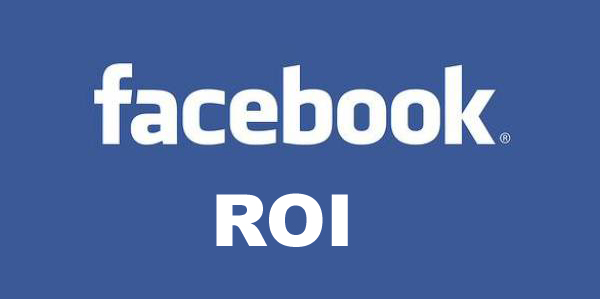

What is Facebook ROI?
So, your business has a solid Facebook page and following. Your page is being updated on a daily basis and you are receiving likes and comments on your multiple posts. However, how do you measure which posts perform better than others? What type of posts receive the most attention? Facebook ROI (return on investment) is essentially a measure to see if all these posts are actually worth posting. How can one measure their Facebook ROI? By looking through the analytics of their page.
Step 1: Select the Insights Tab
In order to access the analytics of your Facebook page, select the “Insights” tab at the top of your page.
Step 2: See How Your Past Posts Performed via Likes, Comments, Shares
Once under the “Insights” tab, you can then analyze how your past posts have performed via Likes, Comments, and Shares. To do so, select the “Reach” tab:
After selecting “Reach”, you can then scroll down to the Likes, Comments, and Shares graph:
After finding the graph, you can then identify which posts causes the peaks and valleys. To do so, select a peak point on either the Likes, Comments, or Shares line:
 Once you click the peak point, a list of all of your posts during that time period will appear. You can then go through each and every post during that time and identify which exactly lead to the most likes:
Once you click the peak point, a list of all of your posts during that time period will appear. You can then go through each and every post during that time and identify which exactly lead to the most likes:
The “Reach” column indicates approximately how many people saw your post (for our example, 1 500 people saw the Week 2 post). The “Engagement” column indicates approximately how many people clicked on your post, liked your post, etc (for our example, 1200 people clicked on our post and we received 27 likes).
You can also identify what type of post it was (whether it be a status, link, or photo) and identify which type worked best for you during this time period. For our example, the most effective on November 11 was a photo. You can then go through the comments and shares to see which posts were most effective in this category.
How does Facebook ROI tie into this? Say your company’s goal was to reach 1500 people with your post. You can identify that you have either reached this goal (full return on investment) or you have not (no return or partial return on investment). The best way to identify if you’re page is performing is to set goals before each post and monitor if your post will reach it.
Step 3: See How People View Your Page
This step is crucial to see exactly how people visit your page (whether its from external URL’s or Google Searches). To find this data, select the “Visits” tab.
Scroll down to the “External Referrers” graph:
This graph identifies how people reach your Facebook Page in a certain period of time. To find the exact percentages of referrals, select a point on the graph:
This will give you insight on how individuals reach your Facebook page.
Step 4: See Which People View your Page (Demographics)
Seeing which people engage with your page is crucial for tailoring content. Creating content that your viewers (and fans) enjoy is the first step to increasing overall engagement (and ROI) with your viewers. To find the demographics of your page, select the “People” tab.
Scroll down and you will see a number of options for demographics such as: Your Fans, People Reached, People Engaged, and Check-Ins. For our purposes, we will select the “People Engaged”.
As you can see from our example, for women, out of our 56% of our women fans, 46% engaged with our page. However, for men, 42% of our men fans, 54% engaged with our page (meaning that 12% of men that are not our fans engaged with our page). This graph also provides a breakdown of age and as you can see, majority of our audience is between the ages of 18-24.
You can also see where exactly your fans (and people engaged) are located geographically.
This can aid in tailoring your content to help improve Facebook ROI and overall engagement.
Facebook ROI is a measure to see if your posts are actually generating attention from your audience. Facebook Insights provides essential insight to see if indeed you are receiving engagement and reaching your goals (ex. 3 new likes). By using Facebook Insights, it can help you tailor your content to your specific audience as well as receive a larger return on investment. We highly recommend to incorporate these analytics into your social media plan today to optimize your online presence.










